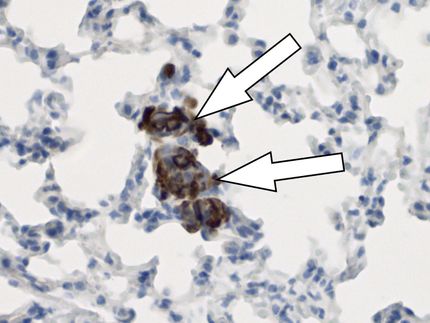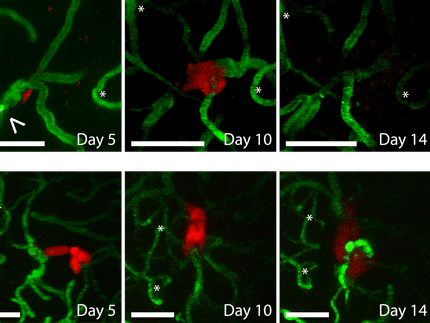Cholesterol-lowering drugs may slow down metastases
Many people have to take statins to lower their cholesterol levels. But statins may be able to do even more
Researchers led by Ulrike Stein of the ECRC and Robert Preißner of Charité report in "Clinical and Translational Medicine" that these drugs inhibit a gene that promotes cancer cell metastasis.

Symbolic image
pixabay.com
Cancer patients rarely die from the primary tumor but rather from the metastases – even after successful tumor surgery. This is because cancer cells sometimes spread to other parts of body early in the disease, when the tumor is still very small and may not have even been discovered yet. To do this they must break away from the extracellular matrix and migrate into neighboring lymphatic vessels or blood vessels that transport them to new tissue, where they settle and proliferate.
Understanding the molecular mechanisms of metastasis is therefore a key piece of the puzzle in the fight against cancer. More than ten years ago, Professor Ulrike Stein and her lab at the Experimental and Clinical Research Center (ECRC) were able to discover an important driver of this process in human colorectal cancer: the metastasis-associated in colon cancer 1 (MACC1) gene. The ECRC is a joint institution of the Max Delbrück Center for Molecular Medicine in the Helmholtz Association (MDC) and Charité – Universitätsmedizin Berlin.
Drug screening identified statins
When cancer cells express MACC1, their ability to proliferate, move around the body, and invade other tissues is enhanced. “Many types of cancers spread only in patients with high MACC1 expression,” Stein explains. MACC1’s role as a key factor and biomarker of tumor growth and metastasis – not only in colorectal cancer, but in more than 20 solid tumors such as gastric, liver and breast cancer – has since been studied by many other researchers worldwide and confirmed in more than 300 publications. Now together with Dr. Robert Preißner of Charité, Stein has discovered what could disrupt metastatic progression in such cases: Statins, which are prescribed as cholesterol-lowering drugs, inhibit MACC1 expression in tumor cells. The scientists are presenting their findings in the journal Clinical and Translational Medicine.
In their search for MACC1 inhibitors, the researchers conducted high-throughput drug screening with colleagues at the European Molecular Biology Laboratory (EMBL) in Heidelberg, Germany. They independently hit upon statins. They tested this discovery on various tumor cell lines, with favorable results: All seven drugs tested reduced MACC1 expression in the cells but to varying degrees. The scientists then administered the cholesterol inhibitors to genetically modified mice with increased MACC1 expression. This almost completely suppressed the formation of tumors and metastases in the animals. “What is particularly remarkable is that the benefits continued in the animals even after we reduced the animal dose to a human equivalent dose,” Stein says.
Statins have one big advantage: they are already approved
Robert Preißner and scientists at the University of Virginia also examined data from a total of 300,000 patients who had been prescribed statins. This analysis found a correlation: “Patients taking statins had only half the incidence of cancer compared to the general population,” Preißner explains.
Stein advises against taking statins as a preventive measure without consulting a doctor and having their lipid levels checked, so as to ensure no serious side effects occur.
“We are still at the very beginning,” the scientist stresses. “Cell lines and mice are not human beings, so we cannot directly transfer the results.” The experimental studies and retrospective data analysis will now be followed up by a clinical trial, she says. Only after that will it be possible to say with certainty whether statins actually prevent or reduce metastasis in patients with high MACC1 expression.


















































